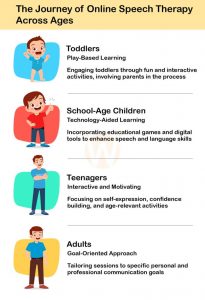Tips for parents to improve your underachievers
By Prapoorna M
Last Updated: November 26, 2021
As the new academic year unfolds, the new curriculum challenges stand in a queue. Children who are usually termed as Underachievers found a list of things of burden to be dragged for literally a year. While the same list of books seems such an exciting pack of new things to be learnt and for some, they are just another set of books. So, what makes the difference? They are all more or less the same children with different abilities and skills. But labelling them to be something will always make them believe that they are so in some corner of their head.
Let’s take an example. Rishi has a high IQ but brings home a report card full of C’s. He does not usually do his homework or might do only after his mom pleads and sometimes fails his course examinations. Rishi can now be determined as an underachiever. But in fact, he is a bright but unmotivated child.

There is no typical profile of an underachiever. Some scrape by with passing marks. Others get an A on one exam and fail another. Some are good students whose grades suddenly drop. Underachieving students have a significant gap between their ability and what they actually produce and achieve in school. These students often see “YOU CAN DO BETTER” written boldly in red on homework, class work and test papers, and receive this message in many other ways, both verbally and non-verbally.
Why does this happen? Generally, children want to achieve. Some do not because they cannot learn the way the material is usually taught. Others cannot sit still in the class or cannot concentrate because of undetected problems. Some cannot because of their temperaments and attitudes. Underachievement is a symptom with multiple causes. The first step is to identify the sources of underachievement.
Know more: Disabilities and Behaviours in Underachievers
Sources of Underachievement
Students underachieve for a variety of reasons, the least of which is because they are lazy, difficult or unteachable. The challenge for each and every teacher/parent is to find the individual key that unlocks a child’s motivation to succeed and build on that foundation. A majority of researchers contend that underachieving problems are deeply rooted in family interaction patterns or attitudes towards education. Others have identified emotional and social problems, lack of an appropriate curriculum, and learning and self-regulation difficulties as possible causes of underachievement.
Educational psychologists have also suggested that underachievement for a gifted student is a choice, a form of social self-defense because of strong cultural or peer identification. Given the wide variety of factors contributing to underachievement in students, it is understandable the students thus affected may demonstrate unique learning needs. The attitudes of teachers and parents toward a child may also be responsible for the gap occurring between student potential and performance.
Role of Family
Underachievers often come from homes where there is considerable instability within the family unit. When families have other worries to deal with, such as marital discord, job pressures, financial concerns, a lack of emotional support, no leisure or family time, and isolation from extended family, supporting day-to-day educational tasks becomes less of a priority. Often, what is happening at school just gets lost in the shuffle.
The two major sources of underachievement within the family include parental expectations and sibling competition.
Parental expectations
High expectations:
In some families the parents demand high grades for their children without any concern as to whether they are actually learning anything. These parents place a high priority on educational achievement and put too much pressure on their children to achieve in school. To these parents, the report card is the important concern, instead of the learning that has or has not taken place!

Counter identification:
In some families, a parent overly identifies with the successes and failures of a child. The parent may almost be living his or her life through the child, and the child may feel he or she could never live up to parental expectations. Many times, one child in such a family will become a high achiever while the other will rebel against the pressure to succeed and will be an underachiever.
Extra-curricular activities:
Parents of children who have demonstrated a high potential for learning, tend to involve their children in too many extra-curricular activities, since they feel their children are special. These children spend every afternoon and evening in one activity or another and then attempt to do their homework late at night. Not only are such children stressed out by having too much of a good thing, many also become underachievers because they cannot keep up such an uptight speed.
Tips for parents to moderate expectations
Balancing achievement and pressure:
For parents, being an encourager of educational achievement without exerting high pressure, requires striking a delicate balance. But there’s actually no formula to state, instead the parents should observe and know where to strike the balance. This differs in each child. Reaction to success and failure: Parents’ reaction is much accounted by children as they always wish to see love and happiness in the eyes of parents, towards them. When parents overreact to success, it creates intense pressure in them that they should never fail and when parents overreact to failure, it throws the children into deep despair and discouragement that they start accounting themselves as “fit for nothing” kind.
Role modeling:
Children should always be guided to have an effective role model to imitate through which they can learn proper behaviors more easily.
Worry:
Children feel more tension when they are worrying about their work
than when they are doing that work.
Sibling competition:
Children compete to define themselves as individuals. In this process, they try find their own talents, activities and interests. Most of all the relationships like peers, neighbors, friends or relatives, children are compared much to their siblings. As the siblings are always indicated as reference points by parents to each other, they always tend to show that they are different from their siblings.
Sibling competition increases skill sets and is an ingredient of shared sibling success. Competition teaches about limits, about losing and getting up again, about working hard in the face of adversity, to be creative, and about winning and losing. Competition can however be both beneficial and damaging. To encourage the siblings to be successful with the same effort they put, parents should take care that such competition is well-intentioned without harming each other, physically or psychologically. Interestingly, same-sex combinations may increase competition, whereas cross-sex may lessen it.
The siblings who are so close to each other, encourage and provide resources for success. Positive siblings view competition as friendly and bonding, whereas negative sibling relationships experience competition as hostile and aimed at weakening the other. The children who feel they should achieve at the same level as an older or younger sibling may react by underachieving.
Tips for parents to handle sibling competition
Stop comparison:
Please don’t compare your children with one another. Try avoiding saying things like, “Your sister gets good grades in math. But why can’t you?”
Don’t label children:
Each child is different. Let them be who they are. Never try to label them.
Enjoy children’s achievement:
Being a parent, it’s a boon to enjoy each of your children’s individual talents and successes. Enjoy them without judging the size of success.
Teach cooperation:
Set your children up to cooperate rather than compete. For example, have them race the clock to arrange their book shelf, instead of racing each other.
Teach positive attention seeking behavior:
Most of the children are attention seekers. Teach them the positive ways to get attention from each other. Show them how to approach another child and ask them to play. Make them share their belongings.
Be fair:
Being fair is very important, but it is not the same as being equal. Older and younger children may have different privileges due to their age and responsibilities. Though parents treat their children equally, it’s common for them to feel that their younger or elder brother/sister gets more attention, care and responsiveness than themselves. So as a parent, you should expect this and be prepared to explain the decisions you have made. Reassure your children that you do your best to meet each of their unique needs.

Family activities:
Plan the family activities that are fun for everyone. The children should involve in those activities together which usually act as a buffer when they come into conflict.
Time and space of each child:
Both the children should be allowed to have their private space. Don’t ask them to play always with their siblings. Children like to have time with their own friends and to do their own things. This actually helps their individuality.
Be there for each child:
You should have your “alone time” for each child. Every parent should try to spend some one-on-one with each child on a regular basis. Try to get in at least a few minutes each day. It’s remarkable how much even 10 minutes of uninterrupted one-on-one time can mean to your child. During such time, try finding out what they like in their brother/sister and what bothers them most. This will help you keep checks on their relationships, and also remind you that they probably do have some positive feelings for each other.
Listen:
Listen to how your children feel about what’s going on in the family. During such communications, keep yourself away from all the disturbances like a cell phone or a fidget spinner that could distract you. The children, who feel that you care for them, cannot be so demanding.
Celebrate differences:
Differences always exist between the children. Let each child know how
special they are in their own way. If you feel that having a word with expert and seeking help from a professional would make a difference, feel free to contact Wellness Hub for Online counseling or offline counselling on child parent counseling , family counseling etc. to make your relationships better. Book an appointment now.
Book your Free Consultation Today
Parent/Caregiver Info:
Client’s Details:
* Error Message









